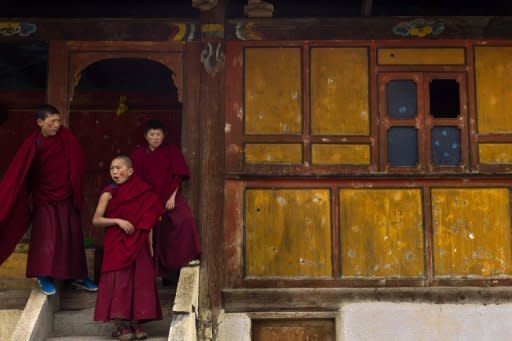Clinton presses China on Tibet, blind lawyer
US Secretary of State Hillary Clinton voiced alarm over Beijing's treatment of Tibetans and a blind rights activist as tensions between the superpowers threatened to intrude on Pacific Rim talks. In Honolulu for an Asia-Pacific summit, Clinton said Thursday that the United States welcomed a "thriving China" but wanted to ensure that the fast-growing region develops standards on openness and basic freedoms. "When we see reports of lawyers, artists and others who are detained or 'disappeared,' the United States speaks up both publicly and privately," Clinton said in a speech at the East-West Center think-tank shortly before a meeting with Chinese Foreign Minister Yang Jiechi. In response to Clinton's remarks, foreign ministry spokesman Hong Lei on Friday told journalists at a briefing that the Chinese government was opposed to "foreign interference into China's internal affairs and judicial sovereignty". "The Chinese government protects the legitimate rights and interests of the Chinese citizens," he said. China had already struck a discordant note ahead of the summit, saying earlier this week that US goals for the meeting in Hawaii -- which include getting the ball rolling on a regional free-trade pact -- were "too ambitious." As Chinese President Hu Jintao arrived in Honolulu for the summit, Clinton said the US was "alarmed by recent incidents in Tibet of young people lighting themselves on fire in desperate acts of protest, as well as the continued house arrest of the Chinese lawyer Chen Guangcheng." "We continue to call on China to embrace a different path." Clinton is the highest-level US official to raise concern publicly about Tibet and Chen amid growing alarm in recent months. Ethnic Tibetan areas of China have seen a wave of self-immolations by Buddhist monks and nuns in protest at what they see as Beijing's stifling rule. Rights groups say that at least five monks and two nuns have died. Chen, a self-trained lawyer who has been blind since childhood, spent four years in prison after documenting late-term abortions and forced sterilizations under Beijing's one-child policy. He was released last year, but rights campaigners say he and his wife were severely beaten earlier this year in apparent retaliation for the release of a video smuggled out of their home in which Chen railed about his house arrest. Campaigners say paid thugs have been attacking anyone who tries to reach Chen in his village in eastern China. A senior US official said that Clinton also brought up the cases directly with Yang, but also sought cooperation on a range of issues including Iran amid new charges the Islamic regime is pursuing nuclear weapons. Clinton said "it was critical for China to communicate both publicly but also privately with Iran that they were on a course that was dangerous," the official, who attended the talks, said on customary condition of anonymity. Clinton also raised concerns about China's economic policies, including its alleged preference for state-run firms in procurement and the value of its yuan currency, which critics say is kept artificially low to boost exports. US Treasury Secretary Timothy Geithner, who is also in Hawaii, said Asian economies, and "China, in particular," must free up their currencies. He also said Asian economies must do more to stimulate domestic demand growth to help protect the global economic recovery from being imperiled by the European debt crisis. Clinton, returning to one of the key themes of her tenure, said in her speech that the United States must help build the emerging new order in Asia as the region becomes "the world's strategic and economic center of gravity." Saying that the post-World War II institutions between the United States and Europe had paid "remarkable dividends," Clinton said the time had come for "a more dynamic and durable trans-Pacific system." Such an order "will promote security, prosperity, and universal values; resolve differences among nations; foster trust and accountability; and encourage effective cooperation on the scale that today's challenges demand," Clinton said. On the eve of the summit, China's assistant foreign minister Wu Hailong shot down US goals such as lowering tariffs on environmental products, saying that developing economies had expressed "their difficulties and concerns."




